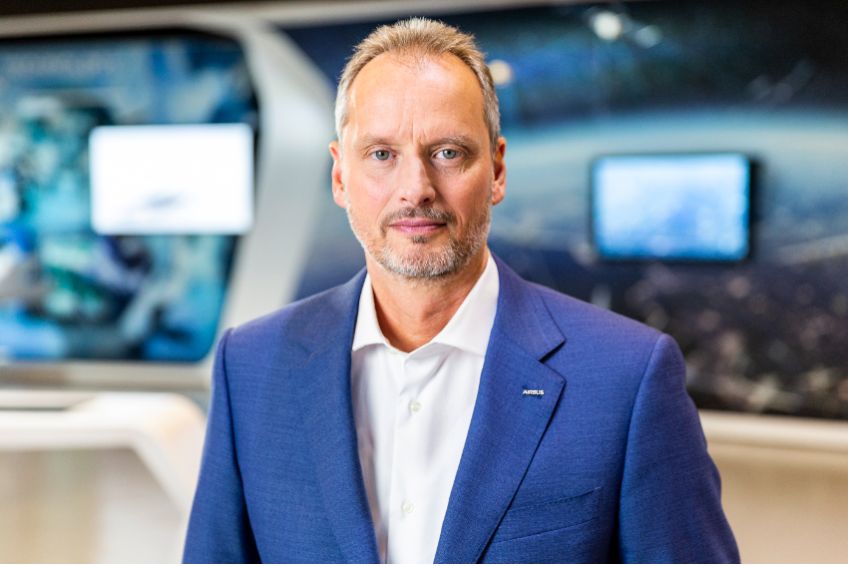Imagine life without accurate weather forecasts, efficient emergency services, or even the luxury of navigating through unfamiliar places with your smartphone. These aren’t merely conveniences but essential components of our modern lifestyle. And guess what? They all depend on Europe’s prowess in space technology. As a Member of the European Parliament, I firmly believe Europe must not only participate but lead in space innovation. The reasons are straightforward: our daily lives, future security, and even the health of our planet hinge on it.
Europe has already demonstrated that it is a vital player in space. Consider Copernicus, our Earth-observation program. Beyond providing weather forecasts, it aids farmers in better understanding soil conditions and helps rescue operations during natural disasters like floods or wildfires. Then there’s Galileo, often dubbed “the European GPS.” It doesn’t just power the navigation on your smartphone; it does so with greater accuracy and reliability. On the horizon, we have exciting projects like IRIS², a secure communication network designed to safeguard our data from cyber threats.
The utility of space technology isn’t limited to enhancing our daily comforts; it is indispensable for preserving life on Earth. Satellite data contributes to monitoring deforestation rates, ocean currents, and even air quality. These insights empower policymakers and scientists to take meaningful actions against climate change, thereby preserving natural habitats and biodiversity.

MEP Christophe Grudler is a member of the Renew Europe Group from France. He is a member of the Committee on Industry, Research and Energy.
However, it’s not all smooth sailing. Europe currently faces a daunting challenge due to a budget shortfall. Shockingly, Europe invests seven times less than the U.S. in its space policy. This financial disparity hampers our efforts to be self-reliant, a cornerstone for any vision of strategic autonomy. A dependence on other nations for space access not only compromises our data security but also risks our technological sovereignty.
Even more concerning is Europe’s current lack of autonomous access to space. In simple terms, if we don’t have our own launchers, we don’t have a space policy. This dependency on foreign launch capabilities seriously undermines our strategic autonomy, impairing security and defense missions. The root cause? Fragmented governance, inconsistent industrial decisions, and stark underinvestment in our space capabilities. It’s high time we addressed these issues.
Shockingly, Europe invests seven times less than the U.S. in its space policy.
Let’s not forget about sustainability, either. As the number of satellites increases, so does the potential for space debris, endangering future missions. Europe is committed to spearheading sustainability regulations to mitigate this risk. We’re focused on launching smarter satellite constellations that have minimal environmental impact.
In summary, space isn’t a matter for idle speculation or the subject of science fiction. It is, in every sense, vital to our daily life, national security, and planetary well-being.
A unified, adequately funded European space policy isn’t merely desirable; it’s imperative.
The challenges are daunting, but the rewards—both terrestrial and extraterrestrial—are beyond measure
Make Space a Top Priority
Ambitious programmes like IRIS² and Galileo and new technologies such as quantum and laser communications technology will be key for our future: a secure, digital and connected Europe.
From safeguarding citizens to the weather forecast, from protecting the climate to the apps on your phone – space is the foundation of our modern lives and a hotbed of innovation. Take solar panels. Once developed for satellites, they are now a key pillar of the energy transition.
The EU has played a major role in space technology. The Copernicus programme’s earth observation satellites provide vast amounts of data which are at the forefront of monitoring deforestation, rising sea levels and greenhouse gas emissions in the atmosphere. They play a critical role in monitoring forest fires.
In the past few years, however, other nations have caught up and now run their own ambitious space programmes. Europe is not only falling behind, but risks dangerous dependencies on other global powers for its security, connectivity and economic independence. We must not let this happen.
The solution is clear: Europe needs to make space a top priority. We have the technological capabilities. What we lack is a sense of urgency and financing. Other countries have long realised that space needs appropriate and ongoing funding. Europe needs to do the same to prevent dependencies that affect all aspects of our lives and come faster than we like, as we live in an age of accelerated, multipolar innovation.
As war has returned to European soil and geopolitical rivalry intensifies, we also need to shore up the resilience of our space assets. Security and space are interconnected, requiring both dual-use innovation as well as investment in capability development.

Michael Schöllhorn is the Chief Executive Officer (CEO) of Airbus Defence and Space.
While our commitment needs to extend to all space technologies, the future European satellite constellation IRIS² is crucial. IRIS² is the EU’s new flagship space programme for a digital, resilient and safer Europe. It will provide the EU with ultra secure communications and connectivity, including to areas that do not currently benefit from broadband Internet, as well as to Africa.
The threat of cyber-attacks on satellites is no longer just a movie scenario. A simple malicious code managed to bring down entire parts of the VIASAT communications network, used by the Ukrainian military. This cyberattack spilled over inside the EU, knocking out thousands of wind turbines in central Europe. It is critical we ensure that information is controlled from end to end, and that is the purpose of IRIS²: to ensure Europe can operate in a highly secure and interconnected environment.
Ambitious programmes like IRIS², Galileo and new technologies such as quantum and laser communications technology will be key for our future: a secure, digital and connected Europe. We must act together now to protect Europe’s interest and its citizens. This requires appropriate financing, political will and a sense of urgency – starting right now.
Sign up to The Parliament's weekly newsletter
Every Friday our editorial team goes behind the headlines to offer insight and analysis on the key stories driving the EU agenda. Subscribe for free here.